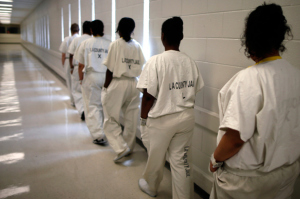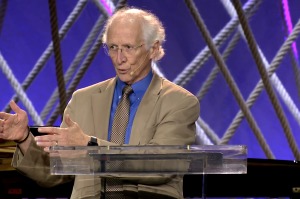Dying to Live
We Christians have a remarkable tendency to focus almost exclusively on the fruit of the problem. We do this as parents with our children, pastors with our parishioners, husbands with wives and wives with husbands. We do this with ourselves. Others do it with us. Like Job's "friend", Eliaphaz, we often draw simplistic conclusions about life, ourselves, and others based exclusively on what we see (Job 4:8).
The gospel, on the other hand, always addresses the root of the problem. And the root of the problem is not bad behavior. Bad behavior is the fruit of something deeper. Our chief problem, as Jesus made clear, is "not what goes into a man", but the defiled heart–or root (Mark 7:15).
Harold Senkbeil rightly identifies our real enemy: death. Sins are the fruit of a much deeper problem, a problem that only God can solve. Death is the root of the problem.
"This looks good", she thought to herself. Such shiny fruit; it fairly cried out to be eaten, to be enjoyed. And what a broadening experience such enjoyment would be-the knowledge of good and evil, the Mighty One had said. How could He want less than the very best for His own?
"My husband and I will be like God Himself," she reflected. "Now, could that be so bad?"
The serpent made sense: it would be much better to know both good and evil than to know only good.
"Here, have some." She handed the juicy pulp to her husband.
"This is good stuff. By the way, Adam, do you know what God meant by that word-I think it was 'die.'"
All sinful behavior can be traced back to the death that happened in Eden. To address behavior without addressing death is to perpetuate death. The Pharisees were masters of this and Jesus called them "white-washed tombs." Many of us Christians are guilty of making this same mistake. We tend to think of the gospel as God's program to make bad people good, not dead people live. The fact is, Jesus came first to effect a mortal resurrection, not a moral reformation-as his own death and resurrection demonstrate.
Most people think that the human dilemma is that our lives are out of adjustment; we don't meet God's expectations. Salvation then becomes a matter of rearranging our priorities and adjusting our life-style to correspond with God's will. In its crassest form, this error leads people to think they earn their own salvation. More often in today's evangelical world, the error has a more subtle disguise: armed with forgiveness through Jesus, people are urged to practice the techniques and principles Christ gave to bring their life-style back into line.
It is certainly true that sinful lives are out of adjustment. We are all in need of the Spirit's sanctifying power. But that comes only after our real problem is solved. Sins are just the symptom; our real dilemma is death.
God warned Adam and Eve that the knowledge of evil came with a high price tag: ". . . when you eat of (the tree of the knowledge of good and evil) you will surely die" (Gen. 2:17). Our first parents wanted to be like God and were willing to pay the price. And we are still paying the price: "the wages of sin is death . . ." (Rom. 6:23); ". . . in Adam all die" (1 Cor. 15:22); ". . . You were dead in your transgressions and sins" (Eph. 2:1).
The real problem we all face is death. Physical death, to be sure. But ultimately and most horribly, spiritual death-being cut off from God forever. And everyone must die. You can either die alone or die in Jesus.
In his death Jesus Christ swallowed up our death, and rose again triumphantly to take all of the teeth out of the grave. In the promise of the resurrection, death loses its power. When we die with Jesus, we really live! (Senkbeil)
Sanctification consists of the daily realization that in Christ we have died and in Christ we have been raised. Life change happens as the heart daily grasps death and life. Death is the operative device that sets us free in Christ–when we die, we truly live. Daily reformation, therefore, is the fruit of daily resurrection (Romans 6:1-11). To get it the other way around (which we always do by default) is to miss the power and point of the gospel. In his book God in the Dock, C.S. Lewis makes the obvious point that "You can't get second things by putting them first; you can get second things only by putting first things first." Behavior (good or bad) is a second thing.
"Life is a web of trials and temptations", says Robert Capon, "but only one of them can ever be fatal-the temptation to think it is by further, better, and more aggressive living that we can have life." The truth is, that you can't live your way to life–you can only "die [your] way there, lose [your] way there…For Jesus came to raise the dead. He did not come to reward the rewardable, improve the improvable, or correct the correctable; he came simply to be the resurrection and the life of those who will take their stand on a death he can use instead of on a life he cannot."
Moral renovation, in other words, is to refocus our eyes away from ourselves to that Man's obedience, to that Man's cross, to that Man's blood-to that Man's death and resurrection!
Learning daily to love the glorious exchange (our sin for his righteousness), to lean on its finishedness, and to live under its banner is what it means to be morally reformed!





























